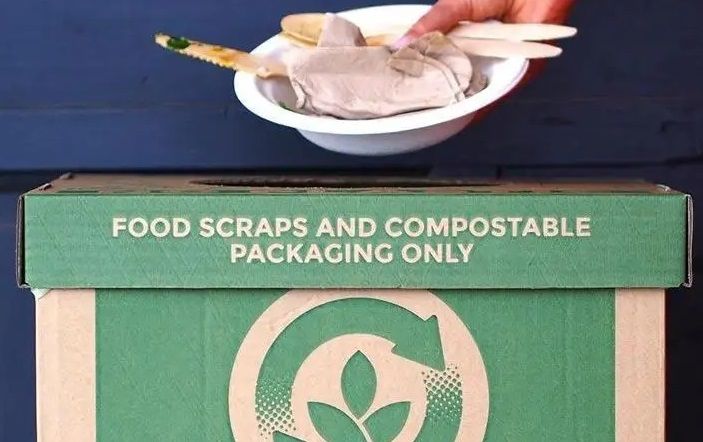Plastic bans are a good start, but circularity is the solution

Gary Smith, CEO of BioPak, discusses looking beyond recycling and plastic bans to a truly circular economy.
The days of SMEs using single-use plastic packaging are numbered. And for good reason. A recent report from APCO indicates that if we don’t act now, it is predicted that by 2050 there will be more plastic than fish in the ocean — a scary thought, indeed.
Our planet needs help. And across the nation, state governments are starting to take action and introduce a range of bans to help phase out single-use plastics.
South Australia spearheaded this movement back in 2021, Tasmania followed closely after and now, in the past month, both Western Australia and New South Wales have started to implement the first stages of their plastic bans.
Circularity is the solution
Plastic bans are a fundamental step in the right direction, but the word that everyone really needs to start getting familiar with is the term ‘circularity’.
What does this mean?
To put it simply, when a reusable alternative is not possible, we need to ensure single-use products can be turned into something resourceful.
For example, products made from plants that can be composted and returned to soil.
While some claim that single-use plastics can be recycled by blending them into roads or park benches, it is actually downcycling. The problem here is that this won’t allow these materials to be reused several times in a circular manner.
With this in mind, a circular economy using natural or reclaimed materials has been noted time and time again as a viable and scalable solution to our waste crisis. And product stewardship schemes are helping businesses and consumers dispose of waste where curb side rubbish collection is simply not appropriate.
Historically, a big challenge for businesses to adopt sustainable practices has been one associated with cost — where a plastic alternative has always been considered the cheapest option. However, with the rise of the conscious consumer, one could argue that avoiding eco-friendly materials could actually have a negative outcome on the bottom line.
Unity is key
Collaboration between governments, businesses and consumers is critical.
The transition from plastic to other materials is no doubt a challenging time for many in business. For this to work smoothly, there needs to be clearer information, and more importantly, a harmonisation of measures and regulations at national level.
A roadmap from the federal government would be welcomed and recommended to avoid ambiguity as to what is and isn’t acceptable, including greater resources to help businesses transition to a circular business model.
Consumers are starting to drive demand and will continue to have influence on the products a business uses. For example, there is a growing trend of businesses taking responsibility for their products, from design to end of life, by participating in product stewardship schemes.
In general, as we continue to deviate away from conventional plastics, recyclability of products and packaging will need to become part of a business strategy with a heavy focus on redesign and a reduction on the materials used.
There is also an opportunity for businesses to educate their customers on how to correctly use and dispose of their products and packaging properly, such as using the ARL on product and packaging.
What about other plastics?
Single-use plastic bans are a great step forward. But this is really just the tip of the iceberg.
Bans should quickly be expanded to include other types of plastic use that directly pollute the environment. Such products as plastic beads in cosmetics, plastic coating for fertiliser, fruit stickers, plastic content in tea bags and other agricultural films should be considered as a matter of urgency.
Overall, the principles of a circular economy need to be applied in every sphere of society: one where companies actively look to design waste (not only plastic) out of products and services, governments to incentivise the creation of local recycling capacity, education for kids (and older people too) to teach the next generation to use resources sparingly and favour products and activities that have a lesser impact on the environment. It’s a real paradigm shift that is needed, not only a plastic ban.
Discover BioPak at IFE Manufacturing 2023, and keep up to date with the latest industry news by subscribing to the IFE Manufacturing newsletter.
)
)
)
)
)
)
)
)
)
)
)
)
)
)
)
)
)
)
)
)
)
)
)
)
)
)
)
)